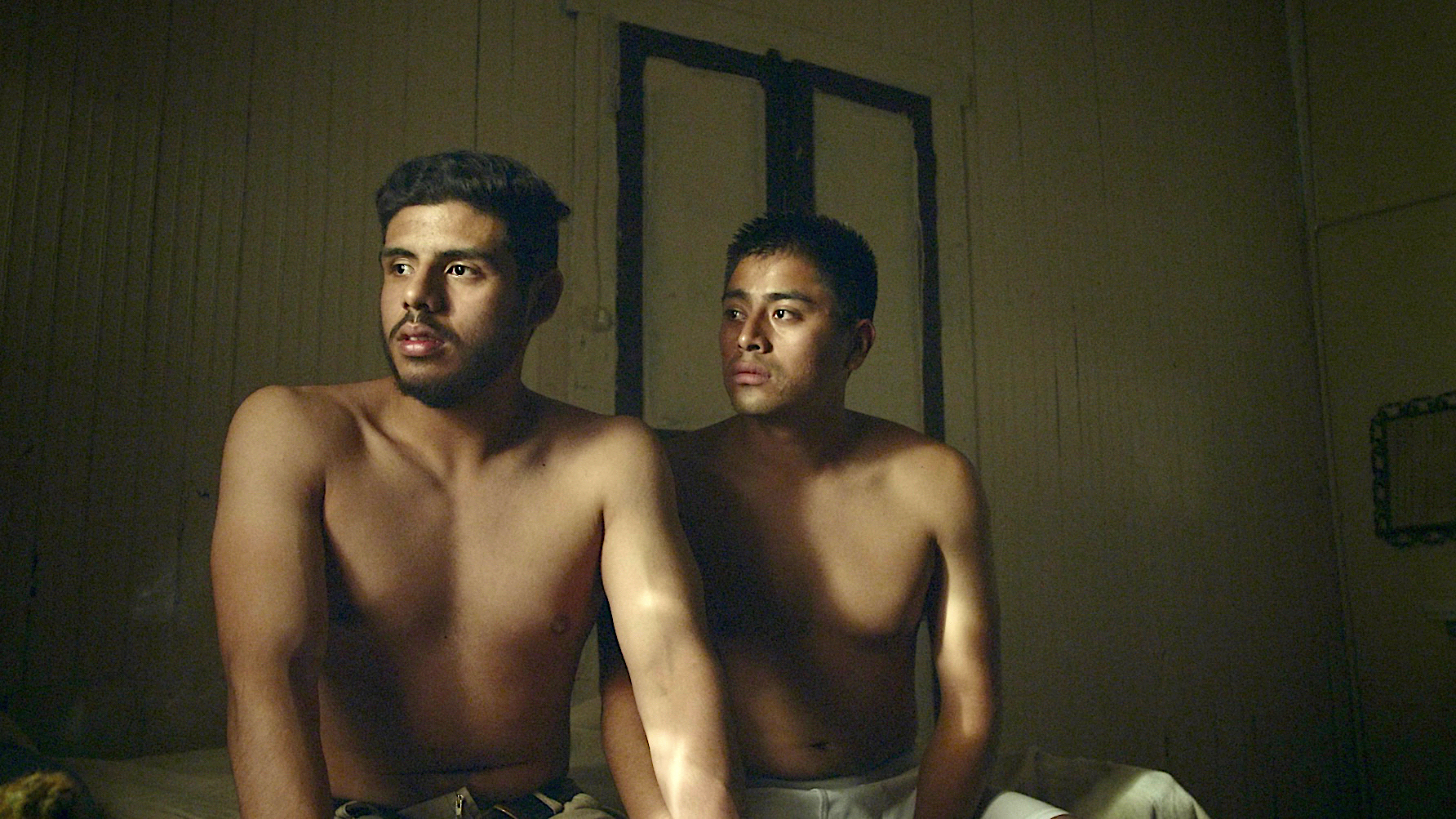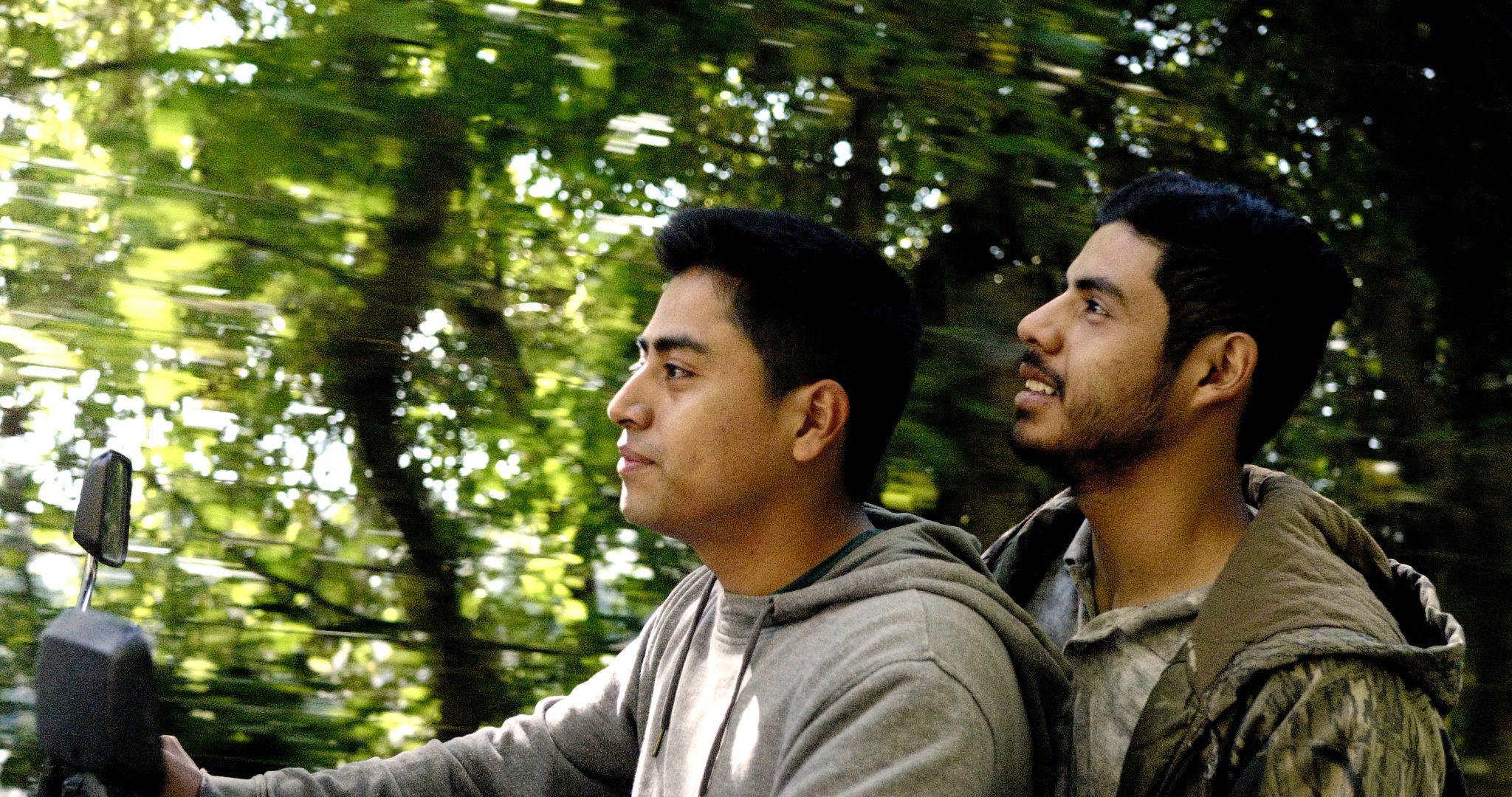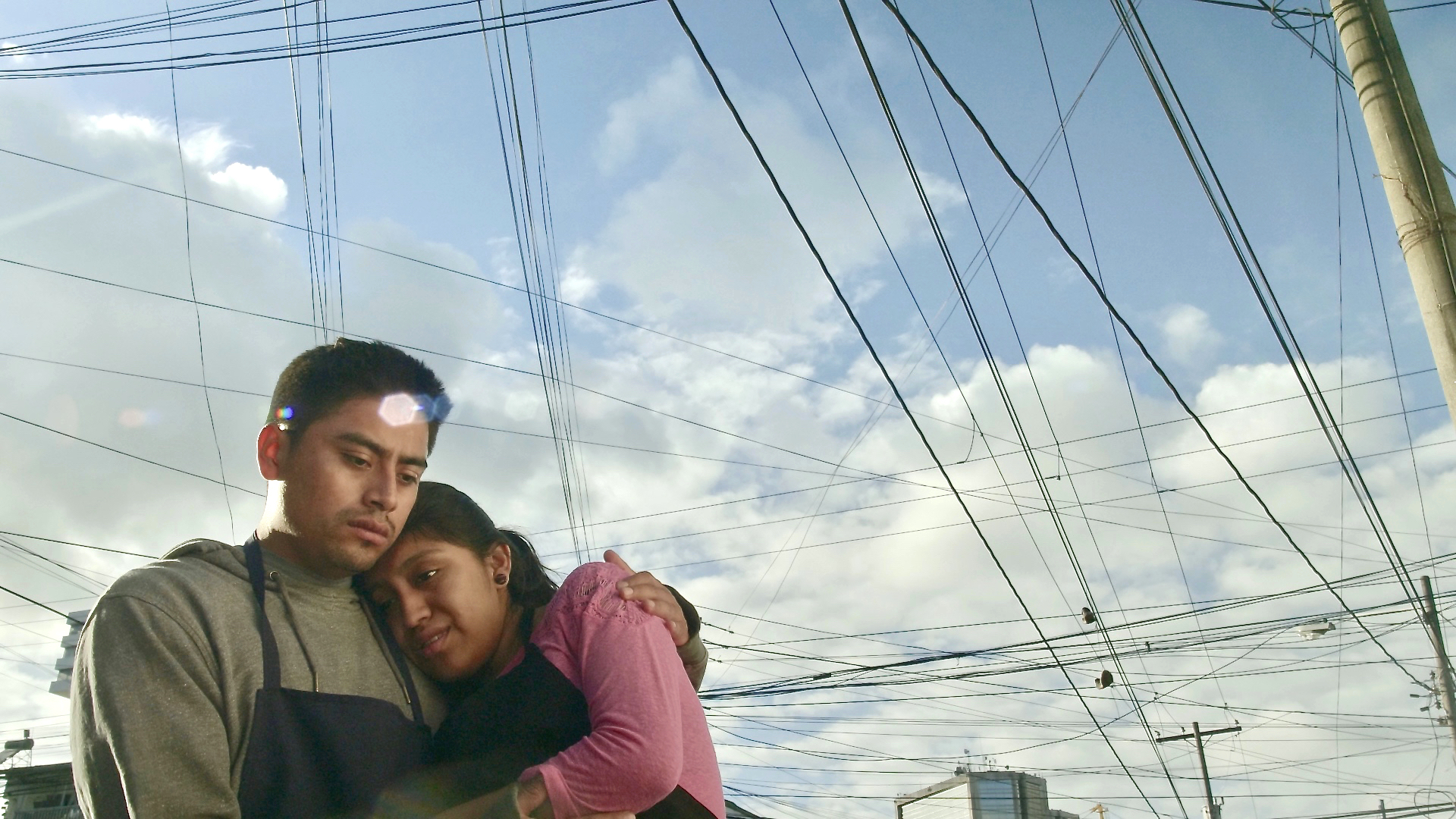

Courtesy of YQstudio LLC
The exhilarating and promising sense of adventure is so prevalent in coming-of-age tales. On the flip side, there’s also hard lessons to be learned, at times bittersweet, at times downright ugly.
Through a verite style and neo-realist approach, José casts an unforgettable spell, one full of rawness and introspection. Researched in the 20 largest Latin American cities (in 12 countries), Chinese director Li Cheng built the story based on interviews with hundreds of young people, but ultimately decided to shoot in Guatemala City. His team restricted the story around answers to three key questions: Which person are you closest to in your life? What’s your most unforgettable memory? Have you been in love? To find the typical stories of the region, young people were asked about their hopes and dreams—about who they’re closest to in life, and about first love.
José (Venice Film Festival Official Selection and Queer Lion Award Winner) centers the story on the title character’s (Enrique Salanic) day-to-day, seemingly uneventful routine. Nineteen-year-old José lives with his mother (Ana Cecilia Mota) in a modest home and he contributes to the house by working at a restaurant that barely pays him a living wage. Luxuries are non existent—he must attract passing drivers to even be curious about the place he works at, let alone decide to stay and eat there.
At first glance, José appears to be a young man of few words and devoid of any emotion, but Cheng sharply contrasts that with what’s lurking underneath. He unravels the protagonist’s secret life. Whenever he gets a chance, José sneaks from work and meets random men off of hook up apps. These clandestine rendez-vous happen in drab and dark motel rooms. The downside? Even these encounters reflect that something is missing—they only serve to alleviate an impulse, but not fully satisfy a burning desire.
That is until Luis (Manolo Herrera), a young migrant construction worker from out of town, enters the picture and dramatically alters Jose’s life, making him grapple with questions about religion, family, love, duty, and identity.
Following a repressed young man living in a mostly religious society where homophobia and tradition is rampant, José renders a character study that shows that even though alienation marks a one’s own journey, pain doesn’t define you.
Both José and Luis mirror each other. Short of words at first, but easy to confide to others their deepest wishes when affection is involved. They indulge in soft caresses. One time after sex, they admire each other’s bodies, noting their perfections and imperfections, the scars on their skin, and the backstory of how they each got those scars in the first place. Sex was just the beginning, a first step. What unites them is both the desire for each other, but also the desire to escape from a restricting society that views them, young gay men, as abnormal.
A standout scene is a motorcycle ride. A sunny and bright day, which contrasts the predominantly gray colors in the film. Green pastures surrounds them. José drives, Luis is behind him, holding him by the waist. Driving on the road, wind blowing on their faces, sun rays beaming off of their skin, fingers grazing each other’s hands, a kiss behind the neck, smiles—the sweet and invigorating promise of young love, of finally being seen and validated for your own being. Masks removed, your spirit born anew.


Courtesy of YQ Studio
Given a few exceptions, the portrayal of sex between men is mostly shied away from in cinema. But this film attempts to show the complex nature of a gay man’s sexuality: desire, shame, and ecstasy, the humanity of it all.
José’s breaks from work in the middle of the day become more consistent. He can’t hide what he wants, his hunger for change becomes bigger. He doesn’t know what to make out of this new experience. All that matters is that it feels right and it’s giving him a purpose in life.
However, when Luis proposes to run away and start fresh in a different city where nobody knows them, José is taken aback; fear resides in his eyes. He wants to follow Luis, give young love a chance, but he can’t fathom the idea of leaving his mother behind, his neighborhood, his job —despite how horrible it is— because it would be like parting and rejecting his upbringing, a huge part of himself.
Is he ready to pass on the familiar to welcome the new? Or is he going to let fear and the unknown drive his life? If he leaves behind his caring mother, does that mean that he doesn’t love his mother? Or that he loves Luis more than his mother? What would that say about him? What are his duties? Is there a way to reconcile joy and boredom? Routine and sense of purpose? Duty and desire?
https://youtu.be/MUdVnQTwRFA
Religion and the doctrine of conservative values envelops José in a way that doesn’t phase Luis. Those differences, and their inability to see eye to eye, is what ultimately destroys the bond they built.
One striking motif that the film isn’t too subtle about is the absence of men and the loveless women they leave behind. José’s family is composed of his mother and sister (who has made a family of her own), but never once do they speak of a family patriarch. If he ever lived with them or raised them, we don’t know.
In a later scene after Luis vanishes, Jose travels to visit his grandma. Affected by Luis’ departure, our protagonist gathers the courage to open up and ask his grandmother why she never remarried after her husband had abandoned her. She tells him that she got involved with a married man, but never found love again. Jose experiences the same hardship as the women in his family history.
José isn’t the only one who suffers the loss of a loved one. His coworker and friend tells him that her boyfriend and father of her about to be born baby abandoned them. Cheng beautifully and masterfully frames them in a still that makes it look like they are both trapped in a web of disappointment.


Courtesy of YQ Studio
Luis’ absence haunts José. Without his presence, without moments to share with him, Luis becomes a sort of ghost whose spirit takes over the title character. He goes in search of him, to no real avail. José resigns to the fact that he’s lost him.
At the end, even though José takes place in Central America, it’s a reflection of a universal struggle: finding one’s own identity in a stifling world that forces you to make concessions and compromises at the detriment of your own happiness. But it’s also about the courage of a young generation, full of love and hopes, waiting to take a world by storm.
José is currently playing at the Quad in NYC now.
***
Luis Luna is Latino Rebels’ arts writer and associate producer of Latino Rebels Radio. He tweets from @luarmanyc.


